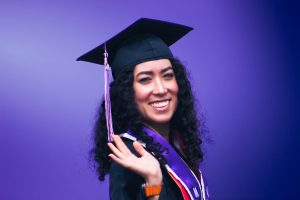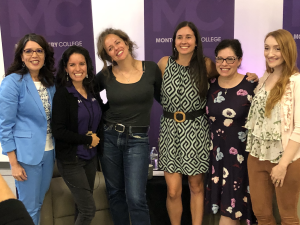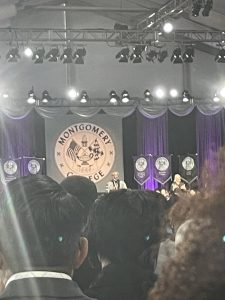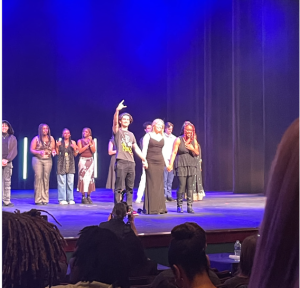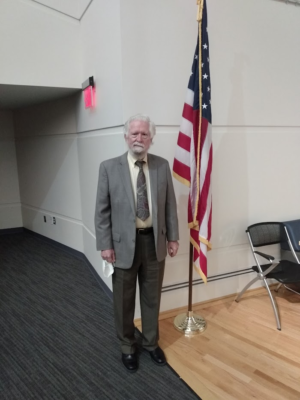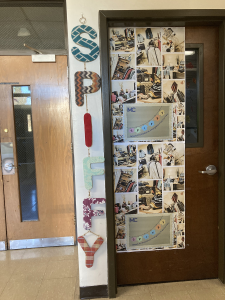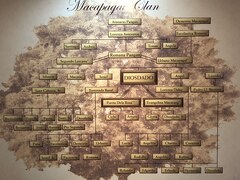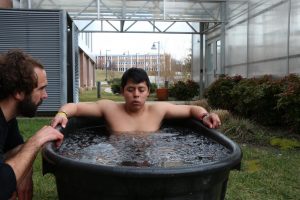Muslim and Arab Students Share Their Voices on Discrimination
September 28, 2016
September 11th 2001 not only resulted in mass casualties, it birthed an overwhelming culture of discrimination towards Muslim and Arab Americans. Americans feared and heavily contested the Islam and Arabic culture.
We have just hit 15 years since the tragic event and the discrimination is still prevalent in today’s society.
One of the great things about Montgomery College is that the community is so diverse with students of different races, ethnicities, religions, cultures and backgrounds. However, that doesn’t mean that students haven’t experienced discrimination in their lives.
Nine Muslim students and one non-Muslim Arab student have decided to share their voices and experiences of discrimination.
“It gets scary and uncomfortable for me and other Muslims to say what our religion is around this time,” said Sunduj K Mirza. She also mentions “our religious holiday fell around 9/11, so people assumed that we celebrated 9/11.” Mirza shares that in her religion they follow “the Islamic calendar, which is different, [the] holidays are a different time. It’d happen to be on 9/11 this year.
Shabnam Al explains that “as a Muslim I know the Qur’an does not say to kill or attack people. [The terrorists] are not real Muslims, I believe […]I’ve been here (in the US) for 2 years I’ve never seen these things (discrimination) until now.”
Aboubacar Haidara, a Muslim individual who’s appearance doesn’t make him “look Muslim” says he hasn’t faced any discrimination yet because no one knows he’s Muslim. Though he also worries that “[he’ll] be discriminated in the future because of [his] name…it’s a Muslim name. Anybody can be Muslim no matter the name or what they look like.”
No one is “happy about [being discriminated against],” says student, Saikou Fadiga. “There is nothing I can do about it. All I can do is pray and it will stop one day because the terrorists are making Islam look dirty.”
Moctor Thiam, who has been discriminated for his name, shares that he has been discriminated “in the governmental system.” “I became an American recently and it took me long years because of my name to become an American. There are terrorists with my name,” says Thiam. Due to his, Thiam tries to hide his true identity; he is scared of Islamophobia.
Student, Nazea Khan, reports that “yeah of course” she went through discrimination after 9/11. “After 9/11, I was only a little girl. My dad faced discrimination at work and it was hard to see that as a little girl.”
“When I was in high school, on the bus I pulled out my portable charger—somebody yelled that I had a bomb, it freaked me out,” shares Khan. “I’m just thankful that it didn’t escalate because it could have gotten worse.”
Another student, Mohammed Khan, explained that he too went through discrimination “after 9/11 in elementary school”, by “being bullied, people made fun of my name and stuff like that.”
There are also those students who’ve experienced discrimination for wearing the hijab,a veil traditionally worn by Muslim women which covers the head and chest.
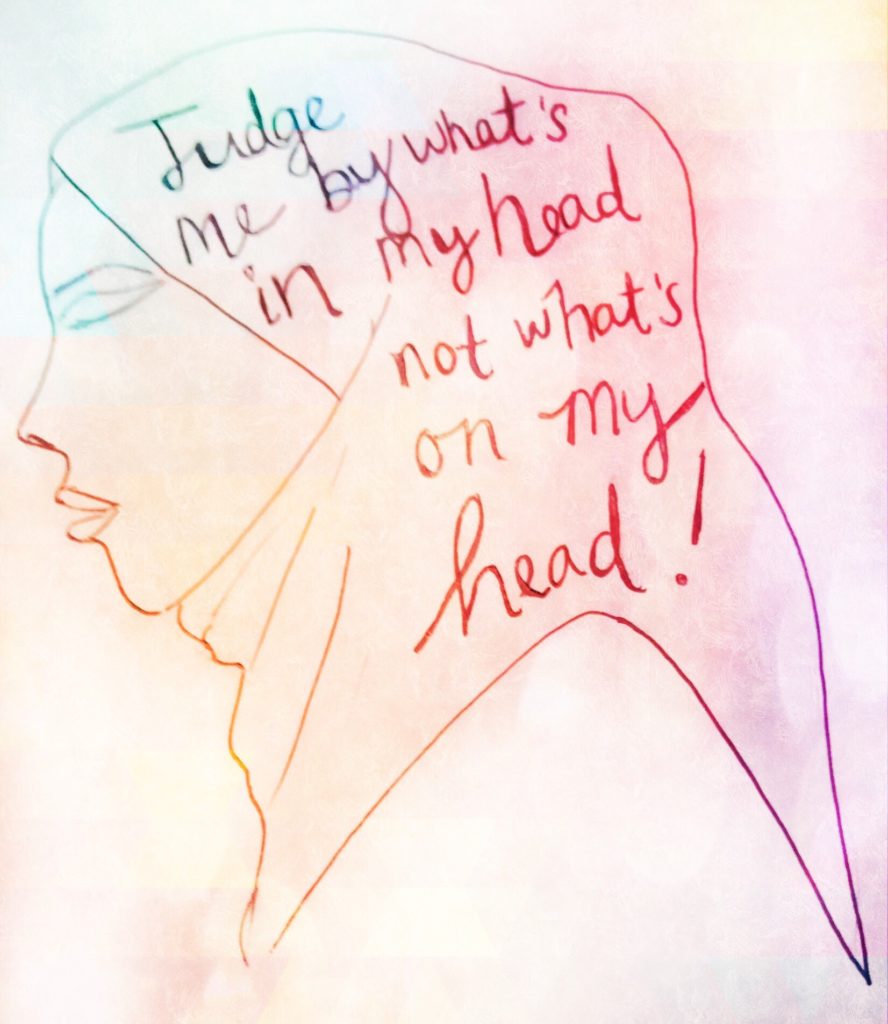
Nowshin Ahmed, reports that she was rejected from a job over the hijab. “After the second interview I didn’t get a call [so] I called them.” Instead of telling her whether she got the job or not,they told her they didn’t know how their boss would feel about the hijab.
Ahmad shares yet another story about the morning Bin Laden was shot. “I went to school and people were looking at me that morning,” said Ahmad. “Someone said to me ‘sorry for your loss I heard your uncle got shot….It’s not a nice thing to be associated with that man. He was a bad man.”
Furthermore, there are those who do not believe in the Islam religion but have been discriminated for looking like a stereotypical Muslim. One of these people happened to be an Arab non-Muslim student named Shaadi Massoud.
Massoud shares that “I have people saying I’m a terrorist. They think I am Muslim because of my beard.” He continues, “They look at me differently and assume I am Muslim because of the way I look.”
Massoud also shares an experience he recently had at an airport travelling back to the United States: “I went to security check they looked at me and pulled me aside, I asked why and he didn’t answer.”



